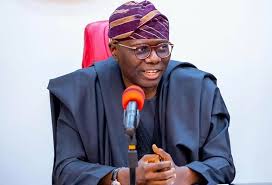Each time government increases pump prices of petroleum products, Labour and its allies hit the street to protest for days, struggling masses lament, government announces a downward adjustment in the price and labour calls off the protest. The question is, will labour even get the half measure this time? MUSA ADAMU asks
The decision by the federal government to liberalise the downstream sector of the oil and gas industry, no doubt, hit Nigerians below the belt. It caught many Nigerians unaware. But to discerning Nigerians, it was a move long expected and the only way to go if the country must survive the current onslaught of the free fall oil price in the international market.
Conveying the message to Nigerians, the minister of state for petroleum resources, Dr. Ibe Kachikwu, the removal of the subsidy was approved as part of efforts aimed at ending fuel queues across the country.
He said: “Following a detailed presentation by the minister of state for petroleum resources to the meeting, it has now become obvious that the only option and course of action now open to the government is to take the following decisions:
“In order to increase and stabilise the supply of the product, any Nigerian entity is now free to import the product, subject to existing quality specifications and other guidelines issued by regulatory agencies.
“We expect that this new policy will lead to improved supply and competition and eventually drive down pump prices, as we have experienced with diesel.
“In addition, this will also lead to increased product availability and encourage investments in refineries and other parts of the downstream sector. It will also prevent diversion of petroleum products and set a stable environment for the downstream sector in Nigeria.”
He further rationalise government move by saying government believes that the main reason for the current problem was the inability of importers of petroleum products to source forex at the official rate due to the massive decline of foreign exchange earnings of the federal government.
As expected, the unions led by the Nigerian Labour Congress (NLC) and the Trade Union Congress (TUC) swiftly condemned the announcement vowing to mobilize its members to protest the development if government fails to reverse it by 12:00pm on Tuesday, 17, 2016.
Curiously however, some of its key allies such as the Petroleum and Natural Gas Senior Staff Association of Nigeria (PENGASSAN) and its counterparts in the National Union of Petroleum and Natural Gas Workers (NUPENG) came out to disagree with the NLC/TUC approach.
The two strategic unions of the oil and gas sector threw its weight behind the federal government move, describing it as painful but necessary move. It however, saw the move as an opportunity to negotiate higher pay for the workers.
Addressing the press jointly, the Chairmen of NUPENG and PENGASSAN, Comrade Igwe Achese and Comrade Francis Olabode Johnson, said:
“The deregulation of the sector is what we have been agitating for the past eight years or more. But each time we want to react, Nigerians want to live on the bedrock of lies. And that has been our problem. We have been living on the bedrock of lies.
“Successive governments come in, what we hear are full of lies. The oil and gas sector must have transparency and it is only when it is transparent that the nation’s economy will beginning to grown and job opportunities would be created.
“For us our clear position is that the deregulation of the sector and opening of the market is a welcome development. Someone asked me about the price whether it is not too high and I say the price is a secondary issue.
The most important thing is that government has come up with a firm stand that would stop payment of subsidy into the hands of few Nigerians. That is the first thing Nigerians must appreciate.
“It was tried by the past administration and I know what happened. It was politicized. Some members of the political lines took over these issues as if it was their bed right to continue milking the nation’s purse.
“It is clear that we must deregulate and stop payment of subsidies into the hands of few Nigerians. We must not mortgage the nation’s economy into the hands of few Nigerians. We must open up the system and see how we can now talk about regulation. The key fundamental issue in the issue of this price modulation is regulation and putting in place the necessary checks and balances that can control the price environment as it is.”
Also toeing the same line, another key ally of the NLC/TUC the National Association of Aircraft Pilots and Engineers (NAAPE), said it would stand strongly in support of the federal government’s resolve to fully deregulate the downstream sector of the Nigerian oil and gas industry.
NAAPE described the deregulation policy as a step in the right direction, pointing out that although it was long overdue, it was better late than never.
The National President, Isaac Balami, who commended the government for the bold decision, said the subsidy scheme was extremely fraud-prone, adding that trying to reform the process was like “attempting to reform Satan (devil), which was an impossibility task.
With the discordant tune coming from the labour unions, public analysts have advice the NLC and the TUC to adopt a different approach to venting its anger against the deregulation.
According to Kunle Shodeinde, a public analyst in Abuja, may be it is time for labour to take a not too family route in protecting its interest.
He said: “Labour wants an increase in the salaries and wages but it is opposing the route through which government will source for money; is it realistic? Make no mistake about it; we will all be in pain as we pay for new price, but it is the way to go.”
Another resident of Abuja, Naomi Jacob, said labour should only concern itself with the available of fuel so that people can be productive and reflate the economy.
She called on government to review workers’ salaries upward and expand the economy so that graduates other Nigerians can have jobs.
As the nationwide total strike called by the NLC and the TUC begins today, what is left to be seen is whether the action will succeed without the support of NUPENG/PEGASSAN which would have ensured that no oil is produced and supply across the country and the NAAPE which would have ensured that no plane takes off.



